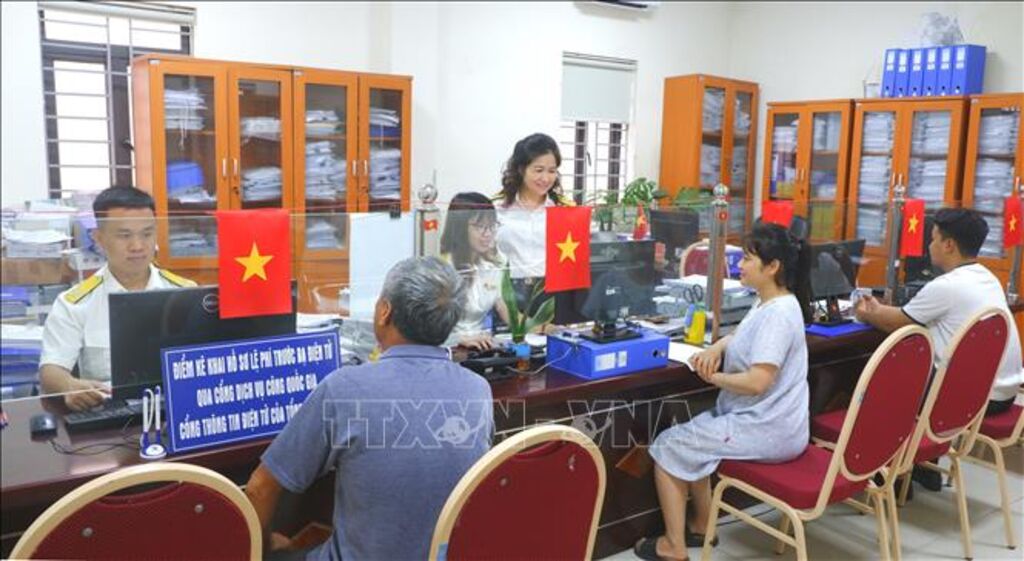 |
| Processing administrative procedures at the one-stop section of the Hanoi Tax Authority in July 2025__Photo: VNA |
The Ministry of Finance (MOF) has released a draft revised Law on Tax Administration that contains a chapter on international tax cooperation and international tax administration. The international tax administration rules proposed in the new chapter aim to strengthen tax administration efforts and align the country’s tax framework with global standards and commitments.
The draft’s new chapter contains four articles covering the scope of international cooperation in tax and international tax administration; principles of international tax cooperation and international tax administration; responsibilities of domestic tax authorities; and rules for applying Mutual Agreement Procedures (MAP) and Advance Pricing Agreements (APA).
Expanding international cooperation
Under Article 28, Vietnam would continue to negotiate and conclude or accede to, treaties, international agreements and forums on tax while fulfilling obligations as a member state and realizing commitments related to tax administration.
Article 29 sets out three new guiding principles, including (i) respect for sovereignty and mutual benefit; (ii) compliance with international agreements to which Vietnam is a contracting party; and (iii) protection of information confidentiality and lawful rights of taxpayers in accordance with Vietnam’s law and international commitments.
Enhancing tax authorities’ responsibilities
Article 30 specifies responsibilities of tax authorities in the international tax administration toward organizations and individuals covered by tax treaties and international agreements to which Vietnam is a contracting party.
Tax authorities would take responsibility for advising the MOF on negotiating, concluding and implementing treaties; entering into agreements on avoidance of double taxation through MAP and APA mechanisms; negotiating and signing tax-related commitments on imports and exports under the customs law and relevant laws; and guiding and processing applications under double taxation agreements and other tax treaties.
They would also have to collect and exchange taxpayer information, cooperate with foreign tax authorities under treaties and international forums, provide administrative assistance in tax matters in compliance with Vietnam’s laws and international commitments, implement the global minimum tax rules, manage the taxation of enterprises with related-party transactions, and fulfill other tax-related international obligations.
The MOF would take responsibility for carrying out procedures for signing and implementing tax commitments while the Government would regulate tax-related information exchange and administrative cooperation.
Implementing MAP and APA
Article 31 sets out new principles for the application of MAP and APA mechanisms.
Accordingly, agreements reached through MAP would be implemented in line with the relevant double taxation avoidance agreements between Vietnam and its partners.
Meanwhile, APA would be applied at the request of taxpayers and through agreements between tax authorities and taxpayers, either unilaterally, bilaterally, or multilaterally with foreign tax authorities. Decisions on APA would be issued by the heads of tax authorities in accordance with the MOF’s regulations.
APA implementation would be based on taxpayer information and databases for use in the corporate governance involving related-party transactions. Each APA would take effect from the tax year in which it is concluded.- (VLLF)









